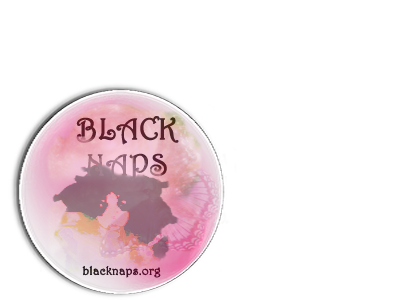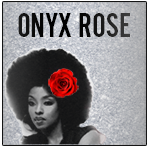Hey ladies, as some of you ladies would agree, using shampoo in our AuNaturale's are frankly pretty damaging to our hair. Due to harsh chemicals , we opt not to use them. Until about 2 days ago I would use maybe once a month a Ultra Moisturizing Shampoo by Creme of Nature. I have since decided to completely do away with shampoo's and stick to my co- washes. However, if I find that I must absolutely use some type of soap on my AuNaturale it would totally be natural Black soap. After doing some research on Black soap I found that it is 100% natural ( in most cases) , love that idea. Most of the Black soap olis are not processed, love that idea. Here I've posted more information on Black soap for our AuNaturale's.
P.S, It's also great for our skin. ENJOY!!!
Traditional Black Soap is brownish-black in color. It is soft with an organic shape. It has a delicate texture & a natural earthy smell. It is not oily or scented. Black Soap has been used for black hair care & black skin care for centuries. Today people from all walks of life are benefiting from this amazing African soap. African black soap is mostly found in Ghana. However, other countries have their own version of African black soap. Nothing compares to the original African black soap from Ghana.
A brief history of Black Soap, Alata Samina or Anago Samina Black Soap or African Black Soap also known as Anago Soap or Alata soap, originates from West Africa. It has been used for centuries in Ghana. It's methods and secrets have been passed down from generation to generation to keep the soap close to mother nature and avoid exploitation & imitations. Many have tried to create their version of black soap with all kinds of ingredients. Ghana's Alata soap is the best quality black soap because it is the ORIGINAL.
For centuries, Ghanaians have used Black Soap to help relieve acne, oily skin, clear blemishes and various other skin issues. African Black soap has also been used to achieve beautiful skin. Africans have also used this natural soap for bathing and washing their hair. Great for removing make-up. Black Soap will leave your skin soft, clear and smelling delicious. This soap is not scented.
Alata Samina or Anago Samina is the term used in the local dialect called Twi to refer to Black Soap or African Black Soap. Alata or Anago is a reference to the people of the Northern Region of Ghana, mainly the Hausa tribe. Alata Samina is now used all over Ghana.
Black Soap or African Black Soap comes from plantain skin. It is a natural source of vitamins A & E and iron. (Plantain is a popular food in Africa, South America & other parts of the world. It can be found in ethnic or international grocery stores such as Latino, Caribbean or African. It looks like banana but much bigger. It does not taste like a banana & has to be cooked before eating) The skin of the plantain is gingerly dried to a precise texture under the hot African sun. It is then roasted in a clay oven. The heat must be constant in order to achieve a particular color, texture & smell. In some recipes, Cocoa Pod is used instead of plantain skins. Cocoa Pod is the shell of the Cocoa fruit. The cocoa beans are used for making chocolate or cocoa butter among other things.
The next process is very delicate because if it is not done properly, with the right ingredients, there will be no soap. The roasted plantain skin is mixed with palm oil, palm kernel oil to form the soap. The roasting of the plantains determines the color of the soap. The longer the plantains are roasted, the darker the soap. African Black Soap is centuries old, has numerous benefits & is not scented. It can be used by anyone who wishes to improve the quality of their skin.
BUYER BEWARE: FAKE BLACK SOAP is hard. It is dyed black. It does not contain any traditional ingredients. Loaded with cheap vegetable oil. Stains your wash cloth. They are chemically processed.
Black Soap :- Used for centuries. Beware of the FAKES
WHY? Because REAL BLACK SOAP simply consists of roasted plantain skins, cocoa pod, palm kernel oil, coconut oil, palm oil & natural sodium. Plantains look just like bananas but much bigger. Because plantains grow in the tropics, it is readily available for making BLACK SOAP. Plantains are a major component of Black Soap. For this reason people who find themselves imitating Black Soap do not tell their consumers that a major component of the soap is left out. Also Black Soap's method is a well kept secret. So unless the recipe is given to a person, there is no way that person can produce traditional Black Soap which is mostly found in Ghana & Nigeria. If one does not have the original recipe, one has no choice but to buy the original soap straight from it's origin.
So in an effort to duplicate the soap, people have disregarded the original components, added their own, and labeled the soap AFRICAN BLACK SOAP. This practice is an insult to Africans who have used Black Soap for centuries before it was whispered to the world. The FAKE SOAP is hard, black and does not even compare to the original. Real Black Soap is always brownish-black. The longer the plantain skins are roasted the darker the soap. But the soap is never completely black. It is not scented.
In this era of shea butter craze, black soap has also fallen to a million and one versions out there. Many black soaps now include shea butter, vitamin E (which the original black soap has plenty of already) and various other ingredients. So don't get yourself confused with all the jargons out there. Do yourself a favor and purchase samples. Try it out for quality and texture and then decide from there. Just as there are a million versions of shower gels on the market, there will be a million versions of shea butter and black soap.
There is no such thing as TRADITIONAL LIQUID BLACK SOAP. If you encounter liquid black soap bear in mind it is not traditional. There are liquid black soaps on the market made from natural ingredients. Do not confuse these with traditional black soap. Liquid black soap is new to the market and an extension of traditional black soap. If you are into natural products, you should ask your vendor what the ingredients are in their liquid black soap.
Once again like any great product there will be imitations. You may prefer the chemically processed fake black soap or not. Remember there are scores of black soap products out there so GET SAMPLES, try it out and then decide from there.
Are the oils used in Black Soap processed?
No! Ghana Black Soap does not contain processed oils. Ghana has an abundance of natural resources and therefore has access to pure natural oils, salts & other natural products & ingredients. Coconut Oil, Palm Kernel Oil, & Palm Oil, are used for cooking various dishes in Ghana each day. These oils have been used to make Black Soap for centuries.
How to Use & store Black Soap
To use Black Soap for a shower or bath - Wet your sponge or wash cloth, rub the black soap on the sponge or wash cloth and you are ready for a shower or bath.
To use Black Soap for hair - Wet your hair, rub black soap in your hair until it lathers. Wash your hair, rinse & repeat the process until your hair is clean. Apply our Enriching Hair Conditioner.
To store Black Soap - Place Black soap in a cool dry area wrapped in saran wrap or in a zip lock bag.
Shelf-Life- Black Soap does not go bad. It can be used at anytime
Thursday, August 13, 2009
Subscribe to:
Post Comments (Atom)























2 comments:
Wow, thanks so much for posting this, I never knew that african black soap came from plantain or coco skins. And I tried some once for about a month and it must've been one of the imitation ones b/c it eventually broke out my skin and stained up everything. Now I know better since reading this. Very good post.
As salaamu alaikum, shukrn samina. Glad it was helpful,
masha allah. As salaamu alaikum.
Post a Comment